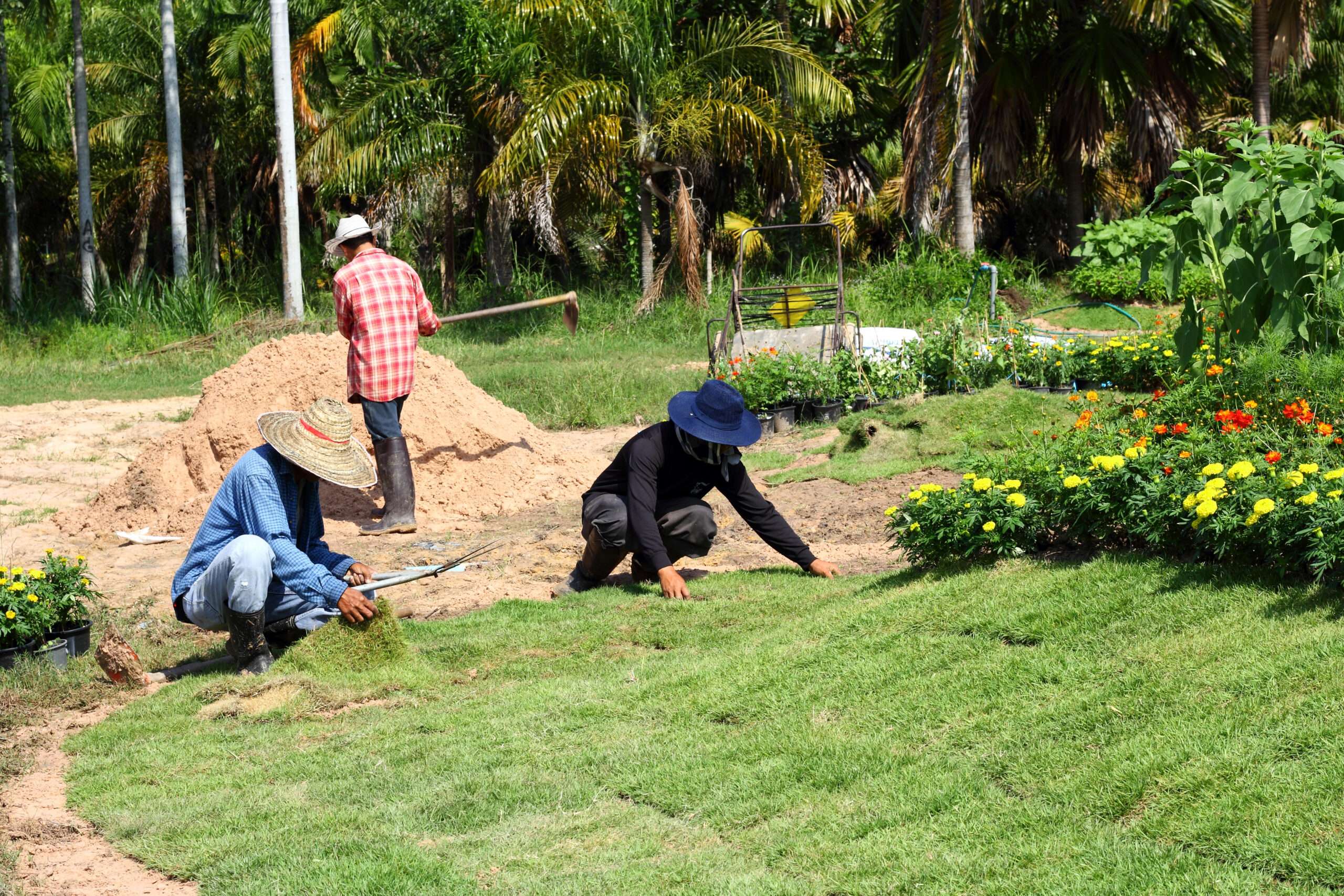Brett Brownlee’s entrepreneurial journey began in childhood, pushing lawn mowers to save up for basketball shoes with his brother. Today, he runs Archway Lawn Care in St. Louis, a company generating millions in revenue annually and employing up to 50 workers during peak season.
However, staffing challenges have plagued Archway, with frequent turnover and difficulties in hiring native-born workers. To fill the gap, the company relies on temporary seasonal workers from overseas, facing frustrations due to visa program inefficiencies.
Despite the hurdles, Brownlee and other small business owners struggle to find enough willing local workers and rely on foreign laborers. The restrictive federal policies exacerbate the issue, forcing some businesses to forgo growth opportunities and operate below their potential.
‘Half Your Team Is Injured’
Immigrants often fill jobs that Americans are unwilling to take, particularly in seasonal industries like landscaping. The H-2B visa program provides temporary nonimmigrant workers to various sectors, including landscaping, carnivals, fisheries, and resorts.
While the H-2B program could address labor shortages, its complexity and limitations hinder its effectiveness in meeting the demands of employers. The program’s intricate rules and delayed visa issuance process create challenges for businesses in accessing timely and adequate labor.
Employers must navigate a lengthy process to secure H-2B visas, facing uncertainties in worker availability and significant delays in receiving necessary labor certifications. The system’s inefficiencies often leave businesses understaffed and unable to meet customer demands.
Andrew Bray of the National Association of Landscape Professionals highlights the recurring issue of workers arriving late in the season, further complicating the already challenging labor situation for businesses like Archway and the Country Club of Virginia.
Landscaping companies are entering into contracts with uncertain labor availability, as the H-2B visa program poses challenges in securing workers. Despite record success in 2023, uncertainty looms for future years, hindering investments in equipment and growth. The limited number of H-2B visas granted annually does not meet the high demand, leading to costly administrative burdens for businesses. This, in turn, creates a dilemma for companies like Archway, torn between legal compliance and competitiveness.
Political actions, such as executive orders suspending visa programs, have further complicated the situation, impacting the recovery of the labor market. Misconceptions about foreign workers displacing American ones persist, despite evidence showing the positive impacts of H-2B workers on the economy. The restrictive nature of the H-2B visa program, coupled with bureaucratic hurdles, remains a persistent challenge for businesses, regardless of the political landscape. Visa caps create a mismatch between supply and demand, hindering the U.S. economy. Businesses must prioritize hiring American workers before considering H-2B workers, even if positions remain unfilled. Removing these barriers would eliminate protectionism that stifles economic growth.
Increasing temporary work visas could reduce unauthorized crossings at the U.S.-Mexico border. The issuance of more H-2 guest worker visas to Mexicans has led to a decrease in illegal immigration. It would be more cost-effective to issue more H-2 visas than to hire additional Border Patrol agents to address unauthorized immigration.
Small businesses are still waiting for a lasting solution to the H-2B visa cap issue. A returning worker exemption could provide relief by exempting workers previously employed under the H-2B program from the annual cap. However, efforts to pass such exemptions have been unsuccessful in the past.
The H-2B program is essential for American businesses, particularly small seasonal ones. Failure to reform the program hinders growth and forces businesses to operate below their standards. Policymakers need to address these challenges to support businesses and workers alike. Please rewrite the following sentence:
“The cat chased the mouse around the house.”
Rewritten: The mouse was chased around the house by the cat.
Source link





